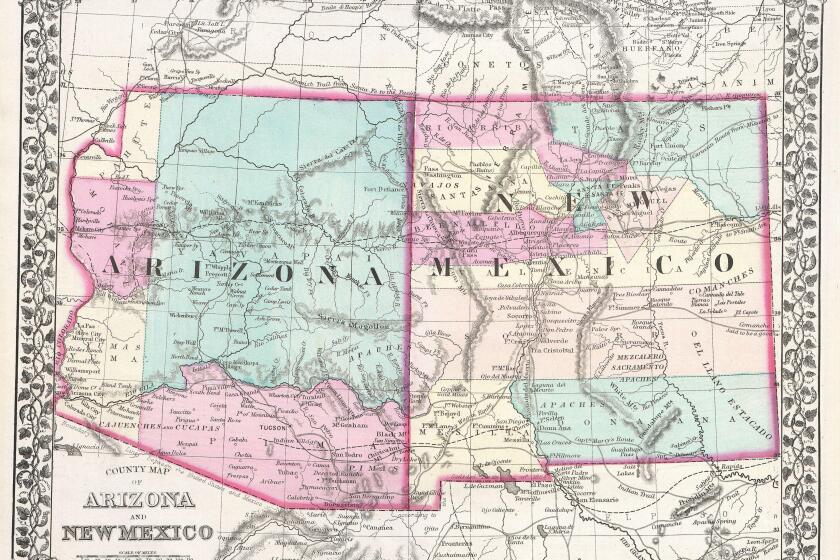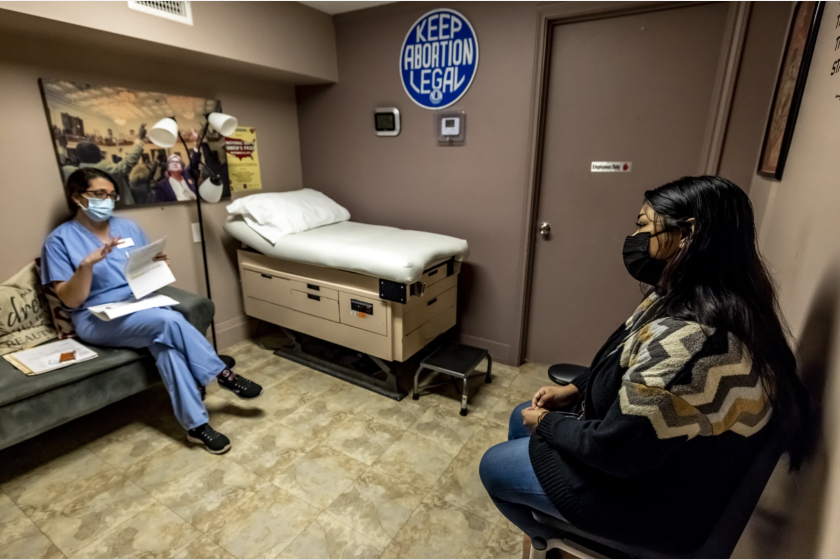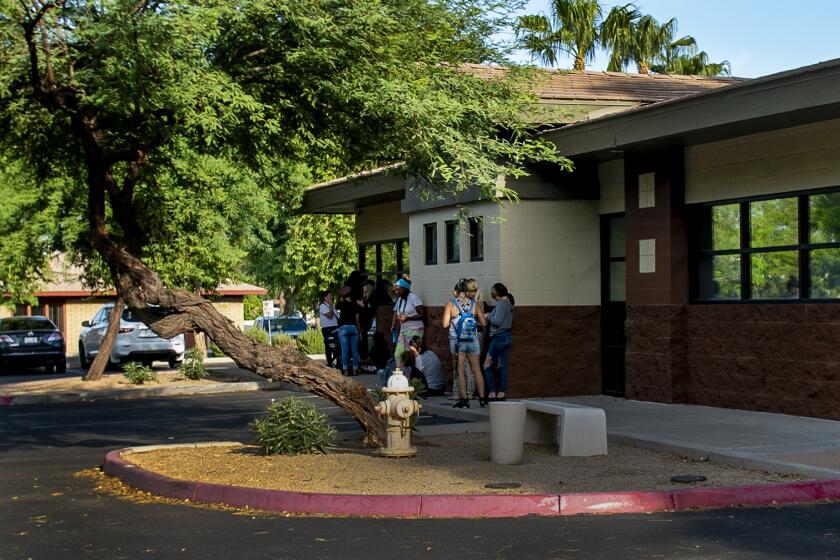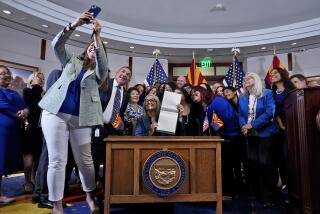Opinion: As a pregnant law professor in Arizona, I fear the abortion ban
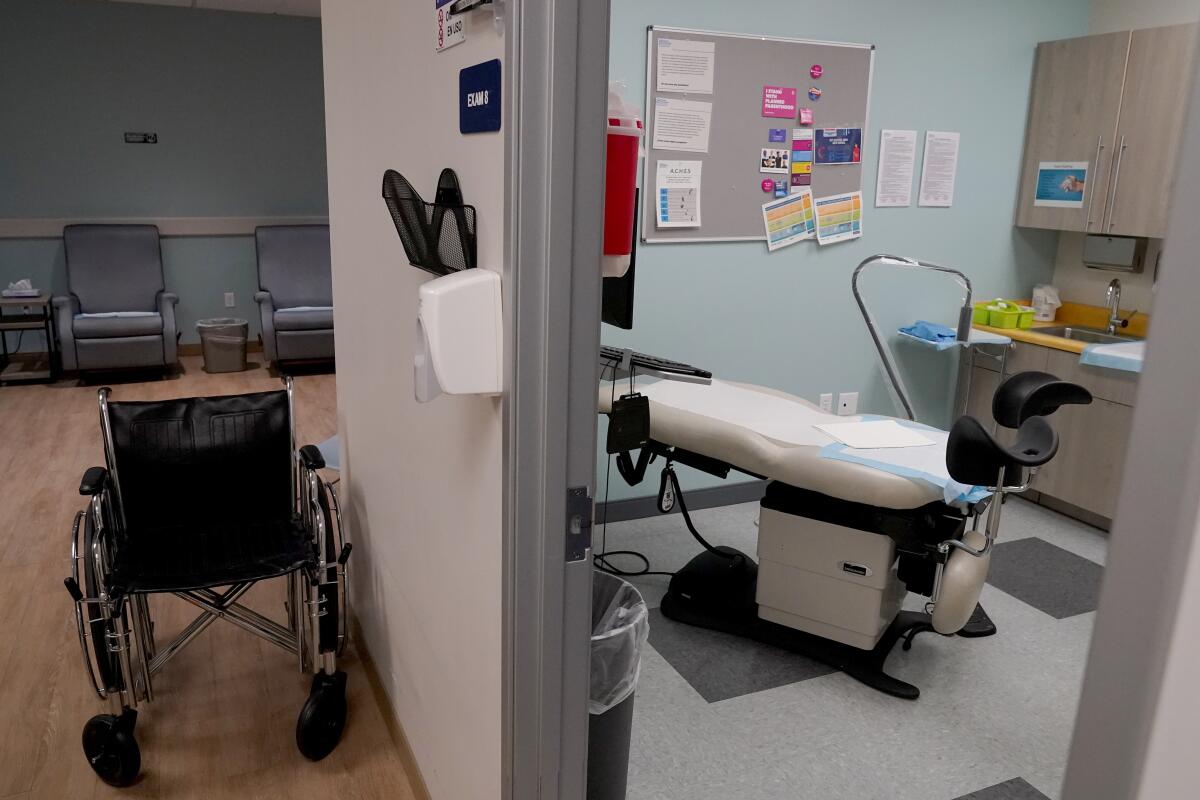
- Share via
I am 19 weeks pregnant, a legal scholar and a resident of Arizona, whose highest court on Tuesday upheld a 160-year-old law banning nearly all abortions, even in the case of rape or incest. In doing so, the court held that Arizona’s 2022 law, which allowed abortion up through 15 weeks into pregnancy, was no longer valid after the Supreme Court struck down Roe vs. Wade that same year.
Many have already explained the obvious legal and common-sense deficiencies in the majority opinion, including its perplexing statutory analysis and its overreliance on archaic precedent. Even some pro-life advocates have opposed the absolute ban for going too far.
William Howell wrote the Arizona law banning abortions in 1864. On Tuesday, 160 years later, Arizona’s Supreme Court reinstated the law.
For the record:
7:32 a.m. April 12, 2024A previous version of this piece misstated that the Arizona Supreme Court’s decision left both the 2022 and 1864 abortion laws intact. The court ruled that the 1864 law supersedes the 2022 provision.
Perhaps most powerful among these criticisms is that the law at issue was passed in 1864, decades before women had the right to vote and Arizona existed as a state. And as the dissenting justices persuasively argued, the majority opinion erred in not reconciling the 2022 law with the pre-statehood law. The court’s decision declines to leave “both fully intact and operative,” even though it could have interpreted the 2022 statute as an exception or amendment to the 19th century one, continuing to allow physicians to provide this healthcare through 15 weeks without incurring criminal penalties.
After reading the decision, however, I realized that I had been unconsciously clutching my stomach — a sign that my objections went beyond legal analysis. I understood then that I was not just analyzing the court’s words as an academic. I was feeling them as a pregnant person in Arizona.
Three out of the four Arizona Supreme Court justices who issued the decision are men. They will not have to feel the loss of personhood that I and so many other Arizonans felt Tuesday morning. They will not have to plot a trip across state lines to access healthcare they may need. They will not be forced to set aside their bodily autonomy. And they will not be forced to choose what could be an agonizing life for their unborn child. As they wrote, their decision was not about their “morals” or “public policy views”: It was a sterile question of statutory interpretation.
States may try to write laws that selectively support pregnant people’s health, but they will fail.
To me, though, the court’s words were profoundly personal. When the court cautioned that “physicians are now on notice that all abortions, except those necessary to save a woman’s life, are illegal,” I couldn’t help but picture my doctor, a man with decades of experience and kind eyes who always calls me “professor” before an ultrasound. Each mention in the ruling of a “medical emergency” conjured up memories of my prior miscarriage years ago, and my fears of again losing our very much wanted baby. Discussions of gestation and conception brought to mind the joy I felt at the first positive pregnancy test and my first time hearing the reassuring thump of our son’s heartbeat. I both saw and felt him in every line.
Importantly, I had these experiences with the knowledge that my decision to become pregnant was my protected choice. Until Tuesday, I retained other choices in early pregnancy if my fetus was not compatible with life.
I am one of the lucky ones. Were complications to arise in my pregnancy requiring a procedure that Arizona may ban as an abortion, I am mobile and financially stable enough to travel out of state for care. But the compounded pain, anxiety and fear that those without such access are living with across the state will only grow in the coming months, as physicians, legislators, prosecutors and others navigate the ruling.
The Arizona Supreme Court’s ruling Tuesday made abortions illegal, except when a mother’s life is at risk. Attention quickly turned to the November election.
I am already considering some of these questions myself. Would the care I received for my earlier miscarriage, for example, qualify as the provision of an “abortion” under the court’s ruling? And as I make preparations for labor and delivery, I have to wonder: What qualifies under the majority’s sole exception permitting abortions “to save a woman’s life?” How close to death would I need to be in the coming weeks to trigger this protection? And who would make that call?
Though Arizona Atty. Gen. Kris Mayes has vowed not to enforce the law, it will undoubtedly have a chilling effect on abortion providers, at best resulting in a chaotic and confusing care landscape that will of course most affect those lacking resources. In the meantime, the ruling may face further legal challenges, and abortion rights could end up a matter for the state Legislature — or for Arizona voters on this year’s ballot, where they may be able to repeal the ban.
I’m anticipating the November election with hope and fear in equal measure. If all goes right, I will be at the ballot box with my 2-month-old son, casting my vote.
Caitlin Millat is an associate professor at Arizona State University’s Sandra Day O’Connor College of Law.
More to Read
A cure for the common opinion
Get thought-provoking perspectives with our weekly newsletter.
You may occasionally receive promotional content from the Los Angeles Times.
